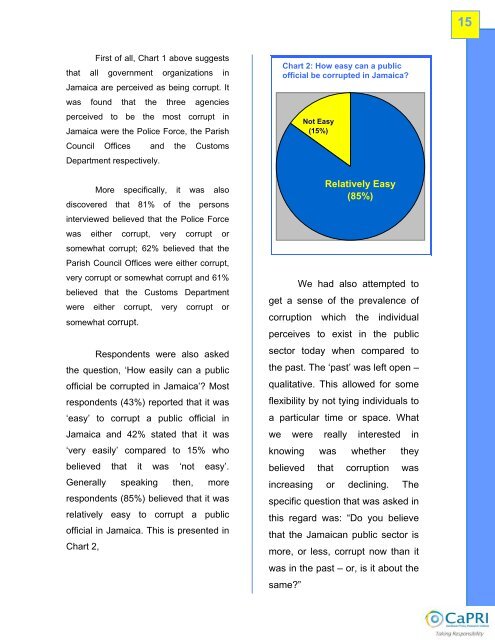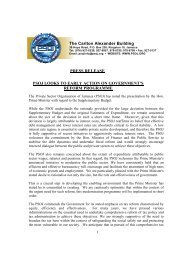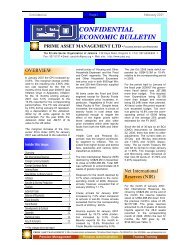A LANDSCAPE ASSESSMENT OF POLITICAL CORRUPTION IN ...
A LANDSCAPE ASSESSMENT OF POLITICAL CORRUPTION IN ...
A LANDSCAPE ASSESSMENT OF POLITICAL CORRUPTION IN ...
Create successful ePaper yourself
Turn your PDF publications into a flip-book with our unique Google optimized e-Paper software.
15<br />
First of all, Chart 1 above suggests<br />
that all government organizations in<br />
Jamaica are perceived as being corrupt. It<br />
was found that the three agencies<br />
perceived to be the most corrupt in<br />
Jamaica were the Police Force, the Parish<br />
Council Offices and the Customs<br />
Department respectively.<br />
More specifically, it was also<br />
discovered that 81% of the persons<br />
interviewed believed that the Police Force<br />
was either corrupt, very corrupt or<br />
somewhat corrupt; 62% believed that the<br />
Parish Council Offices were either corrupt,<br />
very corrupt or somewhat corrupt and 61%<br />
believed that the Customs Department<br />
were either corrupt, very corrupt or<br />
somewhat corrupt.<br />
Respondents were also asked<br />
the question, ‘How easily can a public<br />
official be corrupted in Jamaica’ Most<br />
respondents (43%) reported that it was<br />
‘easy’ to corrupt a public official in<br />
Jamaica and 42% stated that it was<br />
‘very easily’ compared to 15% who<br />
believed that it was ‘not easy’.<br />
Generally speaking then, more<br />
respondents (85%) believed that it was<br />
relatively easy to corrupt a public<br />
official in Jamaica. This is presented in<br />
Chart 2,<br />
Chart 2: How easy can a public<br />
official be corrupted in Jamaica<br />
Not Easy<br />
(15%)<br />
Relatively Easy<br />
(85%)<br />
We had also attempted to<br />
get a sense of the prevalence of<br />
corruption which the individual<br />
perceives to exist in the public<br />
sector today when compared to<br />
the past. The ‘past’ was left open –<br />
qualitative. This allowed for some<br />
flexibility by not tying individuals to<br />
a particular time or space. What<br />
we were really interested in<br />
knowing was whether they<br />
believed that corruption was<br />
increasing or declining. The<br />
specific question that was asked in<br />
this regard was: “Do you believe<br />
that the Jamaican public sector is<br />
more, or less, corrupt now than it<br />
was in the past – or, is it about the<br />
same”


